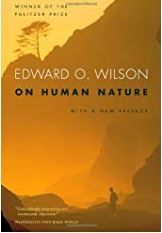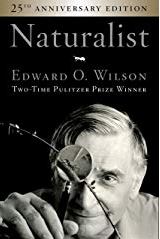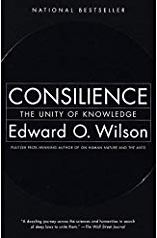|
TRANSLATE THIS ARTICLE
Integral World: Exploring Theories of Everything
An independent forum for a critical discussion of the integral philosophy of Ken Wilber
 David Christopher Lane, Ph.D.
Professor of Philosophy, Mt. San Antonio College Lecturer in Religious Studies, California State University, Long Beach Author of Exposing Cults: When the Skeptical Mind Confronts the Mystical (New York and London: Garland Publishers, 1994) and The Radhasoami Tradition: A Critical History of Guru Succession (New York and London: Garland Publishers, 1992). David Christopher Lane, Ph.D.
Professor of Philosophy, Mt. San Antonio College Lecturer in Religious Studies, California State University, Long Beach Author of Exposing Cults: When the Skeptical Mind Confronts the Mystical (New York and London: Garland Publishers, 1994) and The Radhasoami Tradition: A Critical History of Guru Succession (New York and London: Garland Publishers, 1992).If there's a singular topic Integral students need to be educated on it is evolutionary theory, given their frequent but uninformed use of the term "evolution". These short biographical chapters about evolutionary theorists have been written by different philosophy students of professor David Christopher Lane. (FV)
THE EVOLUTIONARY SCIENTISTS
Glimpses into the Life and Work of Great Thinkers in Evolutionary Biology
Coyne|
Crick|
Darwin|
Dawkins|
Diamond|
Dobzhansky|
Eldridge|
Gould|
Haldane|
Hamilton |
Lamarck|
Lovelock|
Mayr|
Mendel|
Monod|
Spencer|
Trivers |
Wallace |
Weismann |
Williams |
E.O. Wilson
Edward Osborne WilsonVikraant ChowdhryEdward Osborne Wilson, also referred to as E.O. Wilson, is an American biologist who was born on June 10, 1929. Wilson grew up in Birmingham, Alabama and from a young age was fond of the outdoors. Unfortunately, he lost his eyesight in his right eye after a fishing accident at the age of 7; however, he was left with remarkable vision in his left eye. This heightened ability to see little things propelled Wilson's fascination with insects. This passion for entomology would persist throughout his life and became a guiding principle for his theories about evolution. After graduating high school, Wilson went on to get BS and MS degrees in biology from the University of Alabama and then completed a doctorate in biology at Harvard in 1955. The next year, he became a faculty member at Harvard. During the early years of his career, Wilson traveled through many Pacific islands as he worked on classifying ant species in the region. It was during this time that Edward developed his ground-breaking theory of island biogeography with Robert MacArthur. E.O. Wilson Island biogeography detailed how immigration and extinction of colonizing species were linked to the area of an isolated ecosystem and the distance of that island ecosystem from a similar habitat. This theory proposes that there is an inverse relationship between the number of species on habitat islands and the distance between the original habitat. The theory also develops a model that links the chance of successful colonization to birth rate, death rate, and carrying capacity. Further, the theory documents the three steps of the evolution of an island species after colonization. First, the colonizing species will most likely evolve to become K-strategists and invest more resources in fewer off-springs instead of R-strategists that produce many off-springs with high die off rates. Secondly, the species will evolve to better fit the ecological niche of the environment. Lastly, speciation or adaptive radiation may occur to the colonizers. These theories become foundational in the world of biodiversity, conservation biology, and also were applied to biology outside of island ecosystems. Wilson then went on to produce a synthesis surrounding all of his work on social insects that was entitled The Insect Societies. In this book, he begins to build the foundation of his theory of sociobiology covering topics such as the role of genetics in social behavior and social evolution. He then wrote Sociobiology: The New Synthesis which is perhaps his most controversial and well-known work. Wilson attempted to explain social behavior through a biological lens and specifically used the evolution of social insects to draw his conclusions. He argues that altruistic behavior would not live on in a population unless there was selection for it but advocates that group selection was the main method for the persistence of hereditary altruism. This was controversial within the biological community where kin selection was the preferred explanation for these behaviors. The book then goes on to explain social behaviors in vertebrates and how they came to be but finally extends those theories to mammals and then humans. Wilson essentially argued that social behavior was directly related to genetics and evolutionary principles. Sociobiology was criticized heavily by sociologists. The general consensus of the sociology community at the time was that human behavior were completely untethered from genetics and was determined solely by culture and organization. Therefore, Wilson's idea that all social behavior could be explained by evolutionary driven genetic principles was considered deterministic and reductionist. However, some sociologists found value in his work and advocated that more research needed to be done about how human and non-human behavior could be linked. Wilson was even accused of being a misogynist and a racist as some people believed that Wilson was even attributing the atrocities of human society to genetic predispositions. However, most of his ideas have been widely accepted over time and the field of study he founded is now being referred to as evolutionary psychology instead of sociobiology. There is no doubt that this backlash and perception that culture was a necessary component in analyzing humans had a part to play in Wilson's development of the theory of gene-culture coevolution with the help of Charles Lumsden. Together, they argued that genetic evolution could lead to favoring of certain cultural attributes over others and that culture could also have an effect on the speed at which evolution takes place. They also emphasize that human nature is not predetermined by genes but genes do play an important role in the function of culture. Culture also plays an important role in how evolution takes place because culture essentially creates selection pressures based on what is and isn't accepted in society. Throughout his career, Wilson consistently brought together many disciplines in order to come to the conclusions that he arrived at. This idea of the need to unite the sciences was documented in his book Consilience: The Unity of Knowledge. Through the chapters in the book, Wilson unites multiple fields in order to bring a new perspective to the topic. He applies scientific principles to philosophy, unites Darwinian theories with genetics, explains how government policy, biology and social science principles need to be combined for environmental protection and “unifies” a host of other topics in order to show the need to exchange knowledge across disciplines. Wilson's quest to change the world is never ending and he now is working to preserve the world's biodiversity through the half earth project. He advocates that if we were to preserve half the land and sea of the earth, we would be able to maintain a bulk of the world's biodiversity. He stresses that biodiversity is a measure of how healthy the planet is. His organization is working to identify key areas that need to be protected and key species that should be protected. Further Reading1. On Human Nature, Harvard University Press; 2 edition (October 18, 2004) 2. The Naturalist, Island Press; New Edition, 25th Anniversary edition (March 12, 2019) 3. Consilience: The Unity of Knowledge, Pantheon Books Inc; First Edition. (August 18, 1998)
  
MSAC Philosophy Group
The theory of evolution has a long history. However, it was not until Charles Darwin and Alfred Russel Wallace discovered that the wide variety of species we presently see were largely the result of natural selection did evolutionary studies have a solid, scientific basis. In the past one hundred and sixty years, a number of eminent biologists have contributed to our understanding of how complex life forms emerged from simpler, more rudimentary ones. Comment Form is loading comments...
|